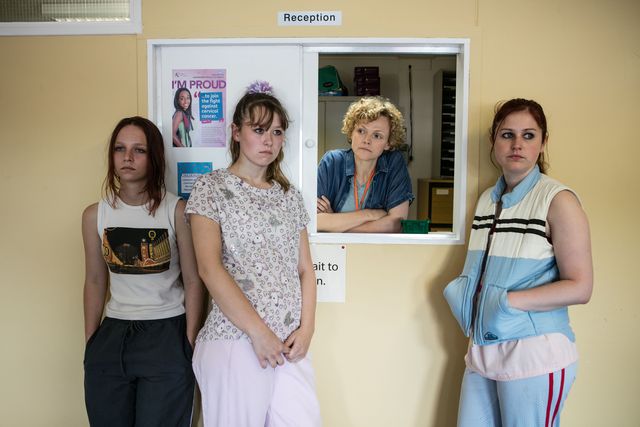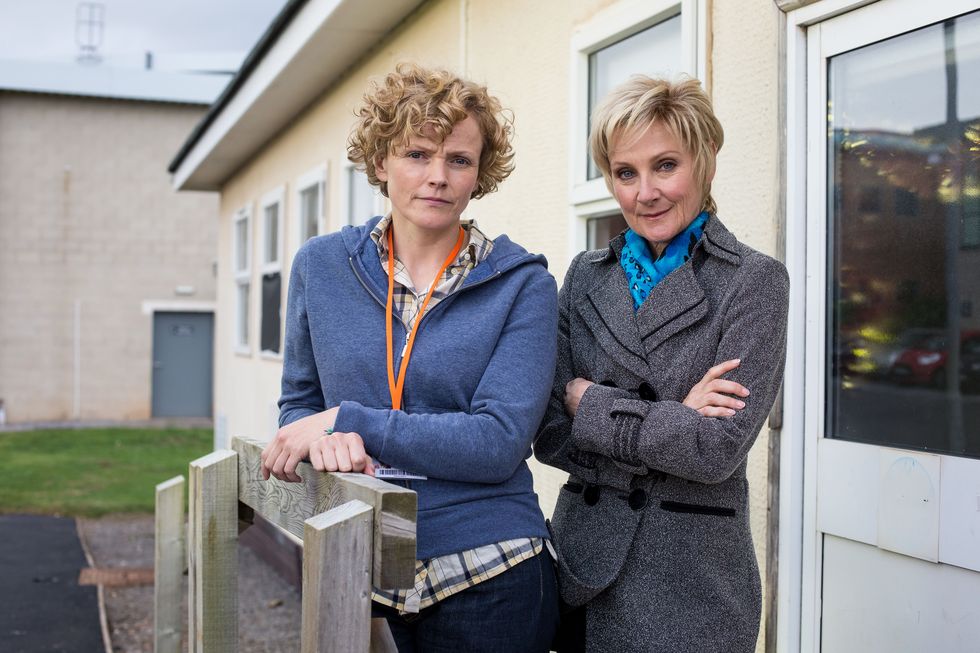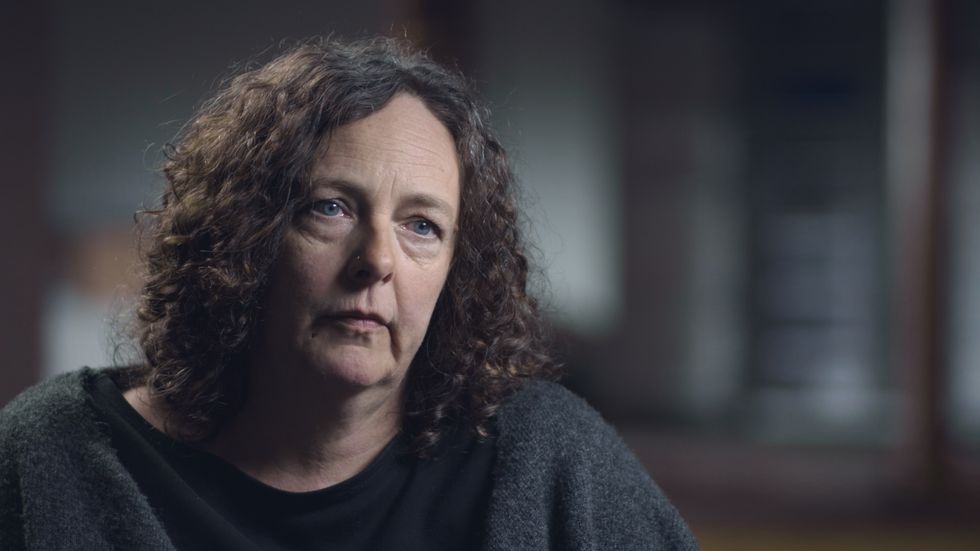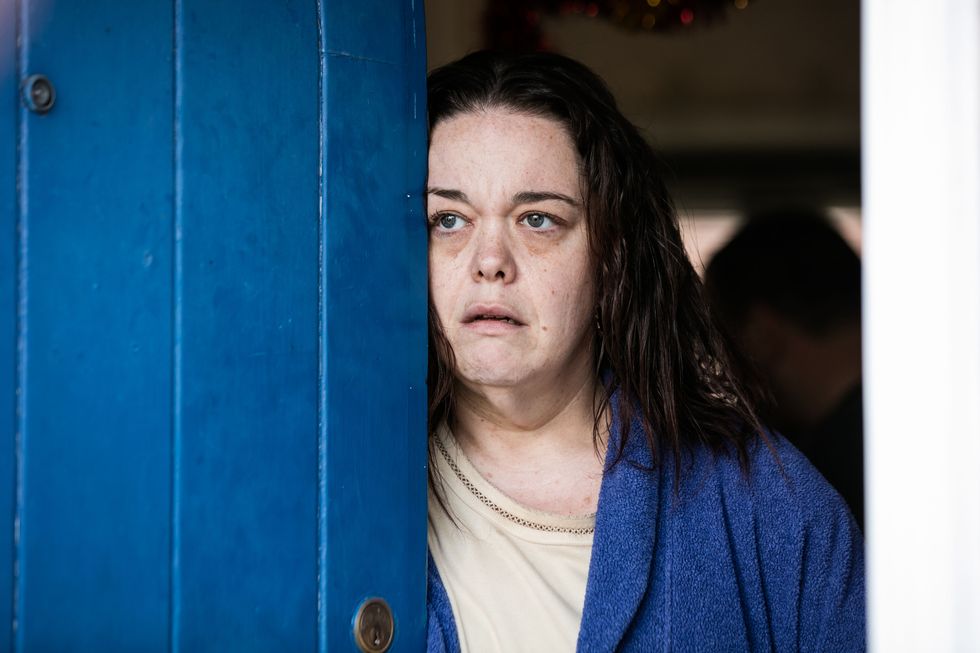The Rochdale abuse scandal is one the most atrocious child sex abuse cases in recent British history, in part due to the failures of the police, social services and the crown prosecution service.
On Wednesday and Thursday this week, the BBC will air the first two episodes of its three-part drama Three Girls, based on the stories of three Rochdale abuse victims, and the real-life sexual health worker Sara Rowbotham who fought tirelessly to bring the widespread abuse to the surface.
"It was a story that needed to be told," Maxine Peake - who plays Sara - told the BBC. "It's a story about a swathe of society that has been ignored and bullied."
When DC Margaret Oliver (played by Lesley Sharp) is assigned to the case, Sara's testimony is finally taken seriously, and proves crucial in the eventual trial of nine men.
The devastating series - written by The C Word's Nicole Taylor - was made after three years of meticulous research, and with the support of the victims' family.
What happened in Rochdale?
Years after being dismissed by local authorities, the child sexual exploitation ring in Rochdale was finally exposed to the public in 2012.
Vulnerable and underage teenage girls from impoverished backgrounds were groomed, trafficked and raped by a gang of predominantly British Asian men between 2008 and 2012.
The men in question - aged between 24 - 59 - plied young girls with alcohol and drugs, before they were "passed around" for sex in the Heywood area of Rochdale (via the BBC).
Allegations that the police and social services were desperate not to appear racist (via The Week), along with a culture of victim blaming meant that the rumours of rife sexual exploitation were not taken seriously.
In 2008 a victim went to the police to report the abuse, which was supported by the detectives involved, but the CPS decided against prosecuting two men after dismissing the witness's credibility - despite DNA evidence of the abuse.
When the CPS dropped the case, the police halted their investigation, until a second girl made a complaint of a similar in nature in 2009. With the new appointment of chief prosecutor for the region, Nazir Afza, the CPS's decision was overturned in 2011.
Among the incidents reported to the police (via The Guardian) included a 15-year old too drunk to recall being raped by 20 men, another victim so drunk that she was vomiting over the side of a bed while being raped by two men, and a 13-year-old victim who had an abortion after becoming pregnant.
What happened next
In 2012, nine men were sentenced in the Rochdale scandal, led by ringleader Shabir Ahmed, who claimed in court that the girls were "prostitutes" running a "business empire" (via The Guardian).
He also shouted in court: "Where are the white people? You have only got my kind here."
Ahmed was sentenced to 19 years for rape, aiding and abetting a rape, sexual assault, trafficking for sexual exploitation and conspiracy to engage in sexual activity with children (via the BBC).
Nine other men involved in another Rochdale child sexual exploitation ring and were sentenced in 2016.
Victim A told the court (via The Guardian): "They knew all along what was going on. They knew crimes were being committed, but they just told my mum and dad I was making lifestyle choices.
"How is being raped by dozens of men a lifestyle choice? Why would any girl of 15 want to do that? They didn't want to acknowledge that it was Asian men hitting on white girls in case it started a race thing. It was uncomfortable for them. But it's not racist if it's really happening.
"I never wanted to be part of anyone's agenda. I just wanted to be rescued."
A case review by Rochdale Safeguarding Children Board accused the police and social services of a "shocking" inability to protect young girls in the area (via the BBC).
The Times also revealed the issue of sex gangs targeting young vulnerable girls after an investigation in nearby Rotherham, which was later described as the "biggest child protection scandal in UK history".
Organised child sexual abuse went on unchallenged by authorities from the the late 80s to 2010, with the paper reporting in 2012 that the abuse was widespread in the town, and that police had known about it for ten years.
Former DC Margaret Oliver - who resigned over the force's handling of the Rochdale child sexual abuse scandal - believes that more perpetrators remain at large.
Oliver is still in touch with the victims, saying (via The Guardian): "I'm speaking to kids who are telling me that even to this day they are seeing offenders that they've named, walking around Rochdale.
"Somebody saw one in London, another person told me that one has moved around the corner from her. That's why I'm saying things haven't changed, because those men have been named by those girls [to the police ...] and I know that they're still out there walking around."
A public inquiry into the abuse scandal began in 2015, and is expected to take five years.
The police, social services and the CPS issued apologies after the sentencing.
Three Girls
Liv Hill, Molly Windsor and Ria Zmitrowicz play three of the girls abused in the scandal, although their stories are said to be comprised of other victims in the case.
Lisa Riley (pictured above), Jill Halfpenny and Paul Kaye play their parents, while Maxine plays the passionate sexual health worker for Rochdale Crisis Intervention Team, who was repeatedly silenced or ignored by police and child protection services.
Lesley Sharpe plays DC Oliver, who was assigned as witness manager to two of the abused girls, spending months helping the girls identify their abusers. Despite identifying abuse by about 20 men, only 11 went to trial, and one of the girls was dropped as a witness.
"I feel that had the full facts been heard from the girls, we would have got heavier sentences and there wouldn't be offenders still walking the streets of Rochdale," she told the BBC.
Despite the harrowing case, Maxine said that it was empowering to be able to share the story of these girls that had previously been rejected, dismissed or ignored.
"It empowers you in a way, because you feel you're doing something that you feel very rarely in acting – that you're part of something really important that might have an effect on people," she told The Independent.
"Knowing that a lot of those young girls we've spoken to are now getting on with their lives, it was encouraging.
"It wasn't a depressing set to be on. It felt full of hope – for the next generation of girls that hopefully will be protected and for the girls who've been through it, who are now young women, being able to move on with their lives. It was a positive experience."
Three Girls airs Wednesday (May 17), and Thursday (May 18) on BBC1 at 9pm.

Naomi Gordon is news writer mainly covering entertainment news with a focus on celebrity interviews and television.
















